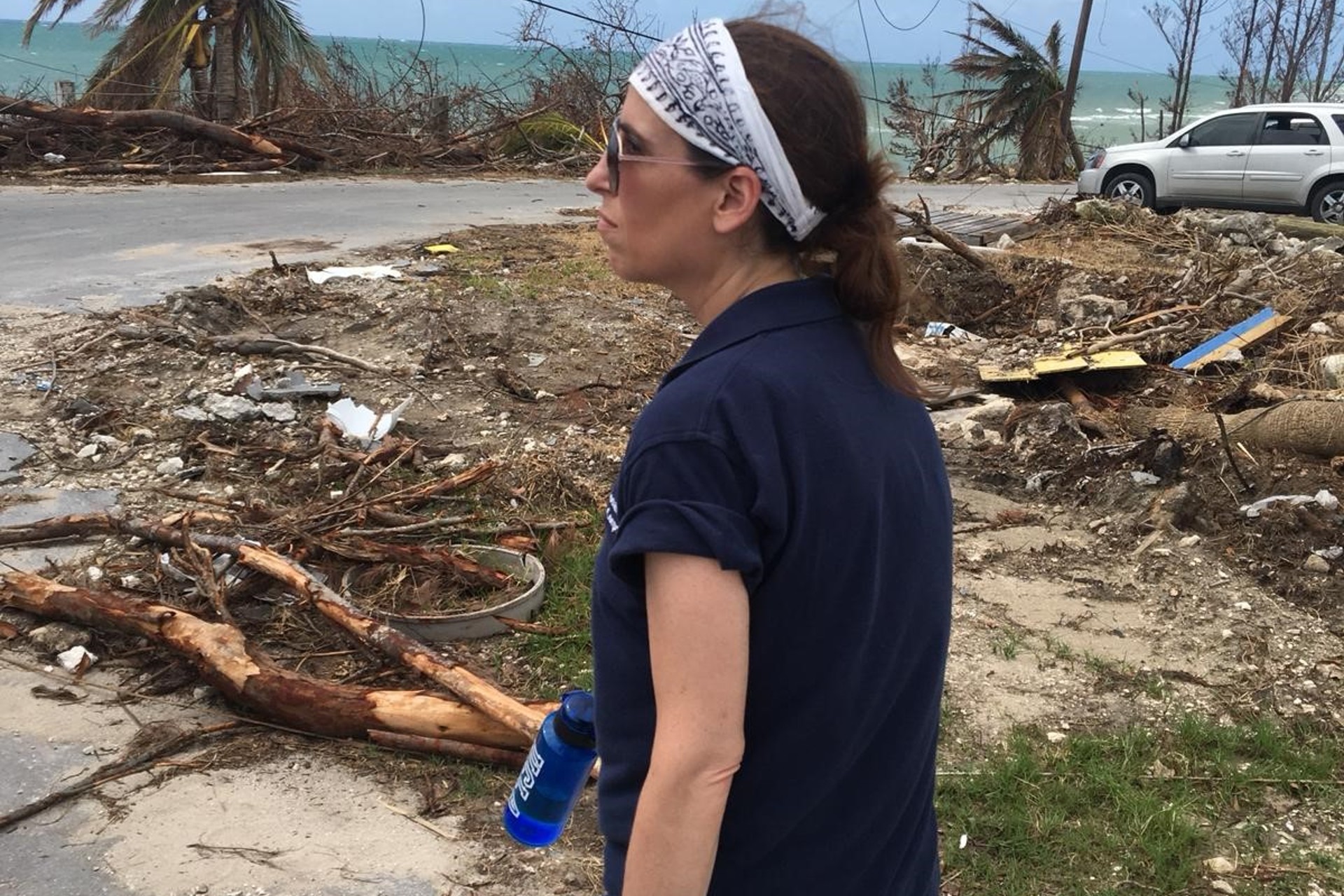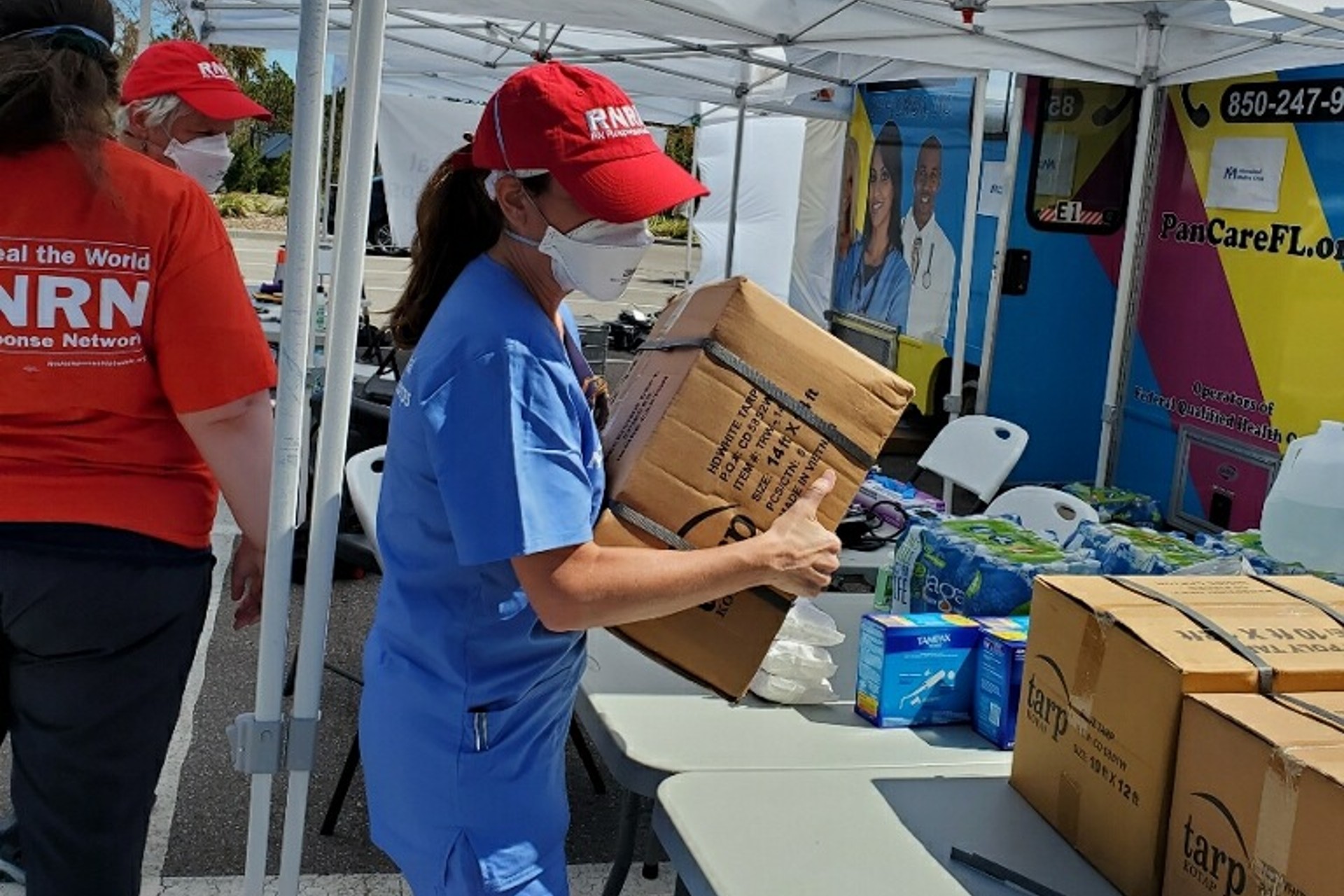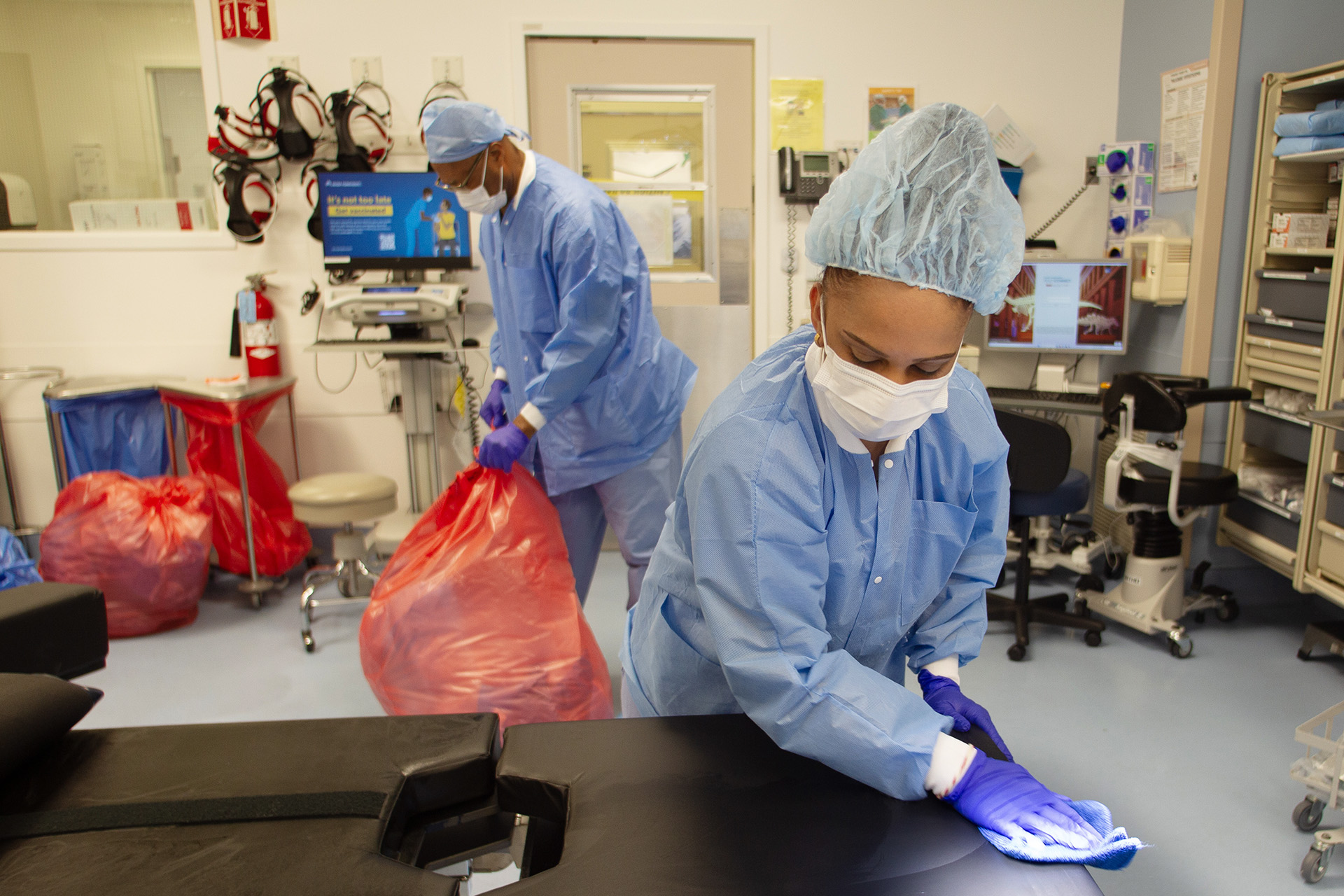Across political affiliation, religion, or socioeconomic status, people come together to help one another when a disaster hits their community. Witnessing this in action was one of the most rewarding moments of being a disaster relief volunteer for Tammi Bachecki, RN, Intensive Care Unit nurse at the Kaiser Permanente Vacaville Medical Center.
Bachecki returned from Florida last month in the wake of Hurricane Ian hitting the gulf community and killing more than 100 people. A normal day for Bachecki during her 2-week deployment included helping people who’d lost their homes and were living in their cars, those who’d lost loved ones, and others stranded for days without food or water.
“When something like this happens, you see people helping those who are suffering because they know they need it,” said Bachecki, a Walnut Creek, California, resident. “Tragedy brings everyone together regardless of politics or religion. It restores my faith in humanity.”
Helping those who have lost everything
Bachecki, who’s been an ICU nurse for more than 20 years, has been volunteering for the California Nurses Foundation’s Registered Nurse Response Network (RNRN) for nearly a decade. She’s been to the Bahamas, Puerto Rico, and New Orleans, to Florida twice, and has assisted in wildfire relief in Chico, California.
Last month on the Southwest coast of Florida, Bachecki and a small team of health care professionals set up multiple mobile clinics to assist people with everything from wellness checks to finding generators. Bachecki checked vital signs, provided wound care, and filled prescriptions as many victims struggled to manage their chronic health conditions.
“When we arrived, there was no power, no water,” said Bachecki. “You saw roofs caved in, mailboxes that had flown across streets, destruction everywhere.”
“Helping people who are in dire straits gets back to the heart of nursing and why I became a nurse.”
She and the team worked long hours in sweltering heat and humidity. Although rewarding, it’s a challenging job both physically and mentally.
Bachecki said that a significant part of being a disaster relief volunteer is providing emotional support.
“We were there to sit and listen to their stories of losing a loved one or a pet and talk about their experience,” she said.
How it started
After watching volunteer nurse responders on TV in Louisiana after Hurricane Katrina in 2005, Bachecki said to herself, “That is what I want to do.”
Bachecki explained that disaster relief is not only vital for the affected communities to get back on their feet, but it’s an experience that reminds her of the reasons she originally wanted to be an RN.
“Helping people who are in dire straits gets back to the heart of nursing and why I became a nurse,” she said.

One of the most memorable moments of her crisis relief experiences was helping a man who had been caught in the middle of Hurricane Michael in the Bahamas. For 3 days he was stuck in a tree holding on for his life.
He was praying that the roots of the tree were strong enough to hold as the rushing water passed beneath him. After finally safely getting down from the tree, his arms were locked from having been stuck in the same position for so long.
“He ended up being fine and told us his story with tears in his eyes but smiling and laughing, too,” she said. “It’s unbelievable the resolve of these people.”
As hurricane season has ended, Bachecki is at home in the East Bay with her husband and dogs, but she is already planning for the next time she is needed.




